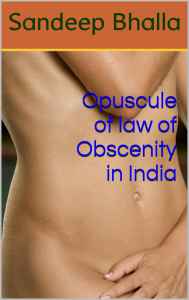An ebook on Crime Investigation in India:
Crime Investigation in India is governed by various legislations as also a number of legal precedents.
As regards legislations, it is governed by Criminal Procedure Code, 1973. Offences governed by Indian Penal Code 1860 besides other specialised laws e.g. Narcotics Drugs and Psychotropic Substances Act, 1985. Evidence of witnesses during trial is to be evaluated on the touch stone of Evidence Act, 1872.
Apart from above legislations, there are numerous directions, guidelines and cautions by Supreme Court to protect the personal liberty, human rights and human dignity under article 21 of the Constitution of India.
Crime investigation is the domain of police but in case of economic or other classes of crimes some other departments are also authorised to investigate. More importantly the matters of national security are investigated by National Investigation Agency or NIA for short. But all these agencies are bound by same laws barring few exceptions.
The commencement of an investigation happens when a crime is committed. The First Chapter is in regard to introduction to the Crime and Offences.
Read a free sample at Google Play Store.
Read a free sample at Amazon Kindle here
The Chapter 2 is about the Police itself. It explains the source of power of Police Officers and hierarchy of Government over it.
Continue reading “Crime Investigation in India”







